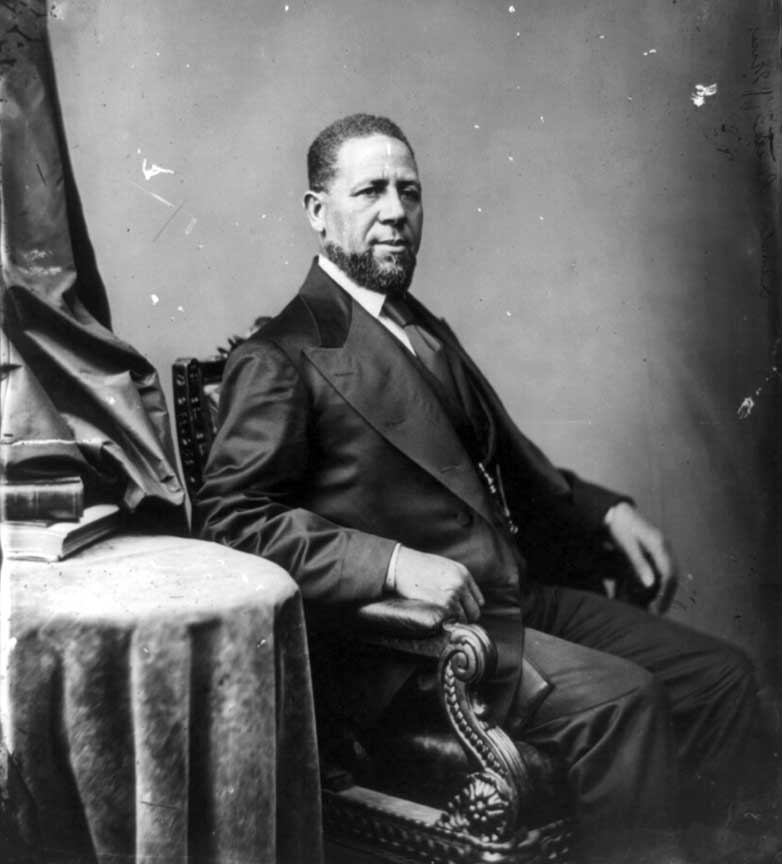First Black Senator

On February 25th, Hiram Revels became the first Black Senator. He took Mississippi's Senate seat, formerly occupied by Jefferson Davis..
Hiram Rhodes Revels was born on September 27, 1827, in Fayetteville, North Carolina. Born to free parents of mixed African, European, and Native American descent, Revels was not subject to the shackles of slavery, granting him access to opportunities often denied to many African Americans at the time. He pursued education in Indiana and Ohio and later became an ordained minister in the African Methodist Episcopal Church.
Throughout the Civil War, Revels was actively involved in efforts to support the Union. He helped organize African American regiments, served as a chaplain for a black regiment, and even took part in the Battle of Vicksburg in Mississippi.
Following the Civil War, the Southern states were undergoing the process of Reconstruction. This involved drafting new state constitutions, rebuilding their infrastructures, and redefining their political structures with the newly freed African American population in mind.
Mississippi, like several other Southern states, had been a part of the Confederacy. Its secession had led to the vacant U.S. Senate seats of Albert G. Brown and Jefferson Davis, the latter of whom later became the President of the Confederate States. As part of the Reconstruction process, these seats needed to be filled.
In 1870, the Mississippi state legislature convened to elect a replacement for Davis's vacated seat. Revels, by then an alderman in Natchez and a member of the Mississippi State Senate, was presented as a candidate. In a significant move that highlighted the changing political dynamics of the South, Revels was elected to the U.S. Senate on February 25, 1870, by a vote of 81 to 15.
His election was not without controversy. Some detractors argued that Revels had not been a U.S. citizen for the requisite nine years prior to his election, as African Americans had only been recognized as citizens since the 1866 Civil Rights Act and the 1868 ratification of the 14th Amendment. However, supporters countered that Revels had long been a citizen and was only denied his rights due to discriminatory laws. The Senate ultimately voted in favor of seating Revels.
Hiram Revels's tenure in the Senate was relatively short, serving just over a year to complete Jefferson Davis's term. However, his presence in such a high office was emblematic of the potential for change during the Reconstruction Era. Revels advocated for desegregation and civil rights during his tenure. After his time in the Senate, he continued to be an active participant in public affairs, serving as a college president and continuing his work as a minister.
 >
>